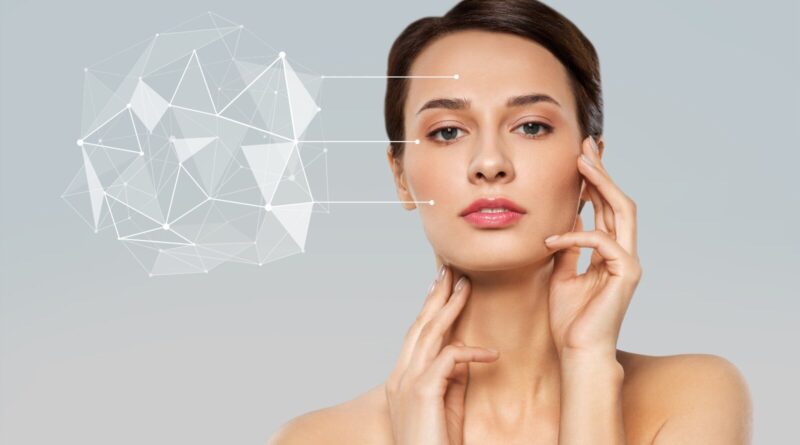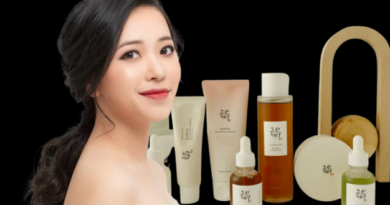Science Behind Skincare: Fun Skincare Facts about How Skincare Products Work
Skincare is more than just a daily routine; it’s a science that works wonders for our skin. The beauty industry is constantly evolving, driven by innovations and breakthroughs in skincare technology. In this article, we’ll delve into the fascinating world of the science behind skincare, uncovering fun skincare facts about how skincare products work and their incredible impact on our skin.
Related article: Ancient Skincare Rituals: Fascinating Historical Skincare Practices Unveiling Fun Skincare Facts
The Skin: A Marvel of Nature
Understanding the Skin’s Structure
Before diving into the science of skincare and raveling fun skincare facts, it’s crucial to comprehend the complexity of our skin. The skin is the body’s largest organ, serving as a protective barrier against external elements. It comprises three main layers: the epidermis (outermost layer), the dermis (middle layer), and the subcutaneous tissue (deepest layer). Each layer plays a unique role in maintaining skin health and appearance.
The epidermis is where skincare products primarily target. The products we use are formulated to penetrate this layer and provide essential nutrients, hydration, and protection.
Skincare Ingredients: The Key Players
Active Ingredients and Their Functions
Skincare products are a blend of various active ingredients, each designed to address specific skin concerns. These ingredients can range from antioxidants, acids, vitamins, botanical extracts, all chosen for their unique properties and benefits.
For example, retinoids, derivatives of vitamin A, are known for their anti-aging properties. They promote collagen production and cell turnover, resulting in smoother and more youthful skin. On the other hand, hyaluronic acid is a potent hydrating agent that locks in moisture, keeping the skin plump and supple.
Peering into the Nano-world: Nanotechnology in Skincare
Advancements in skincare have introduced nanotechnology, a field that deals with materials and structures on a nano-scale. In skincare, nanotechnology enables the formulation of nanoparticles that can penetrate the skin more effectively. These nanoparticles deliver active ingredients precisely to targeted areas within the skin.
According to a Grand View Research report, the global skincare nanotechnology market is expected to reach USD 2.71 billion by 2027, illustrating the growing influence of nanotechnology in skincare products.
Formulations: The Art and Science of Skincare Products
Balancing Act: The Science of pH Levels
The pH level of a skincare product is crucial for its effectiveness. The skin has a slightly acidic pH, typically around 5.5. Skincare products are formulated to maintain this balance, ensuring they are not too alkaline or acidic for the skin. Deviating from the skin’s natural pH can cause irritation and disrupt the skin’s protective barrier.
Understanding pH levels has revolutionized skincare, with brands formulating products that respect the skin’s pH to optimize their performance.
Encapsulation Technology: Protecting Active Ingredients
Encapsulation technology involves enclosing active ingredients within tiny spheres, protecting them from external factors until they are applied to the skin. This ensures the ingredients remain potent and effective upon application. Encapsulation technology has significantly enhanced the efficiency of skincare products, allowing for the controlled release of ingredients for maximum benefit.
The Power of Sunscreen: Defending Your Skin
Sunscreen: A Shield Against UV Rays
One of the most crucial aspects of skincare is sun protection. Sunscreen is designed to shield the skin from harmful ultraviolet (UV) rays, which can cause premature aging, sunburn, and even skin cancer. Moreover, the SPF (Sun Protection Factor) in a sunscreen indicates its effectiveness in blocking UVB rays.
According to the Skin Cancer Foundation, daily sunscreen use can reduce the risk of melanoma (a type of skin cancer) by 40 to 50%.
Skincare in the Digital Age: Data-Driven Beauty
Personalized Skincare: The Future is Customized
The advent of technology has led to the rise of personalized skincare. AI (Artificial Intelligence) and machine learning are being utilized to analyze data, including skin types, concerns, and environmental factors, to tailor skincare routines for individuals. Personalized skincare aims to provide precise solutions, optimizing the effectiveness of skincare regimens.
According to a report by MarketsandMarkets, AI in the skincare market is projected to grow at a CAGR of 40.3% from 2018 to 2026, indicating the rapid integration of AI in the beauty industry.
Conclusion: A Beautiful Fusion of Art and Science
Skincare is a testament to the remarkable synergy between art and science. Understanding the intricacies of skincare ingredients, formulations, fun skincare facts, and technologies empowers us to make informed choices for our skin. The continuous advancements in the field promise a future where skincare will be even more effective, personalized, and tailored to our individual needs.
As we navigate the world of skincare, armed with the knowledge of its scientific foundations, we unlock the potential to achieve healthy, radiant skin. After all, skincare is not just a routine; it’s a journey into the fascinating realm of the science that keeps our skin glowing and beautiful.





Pingback: Food for Your Face From Kitchen: Fun Skincare Facts - Skincare Expertise